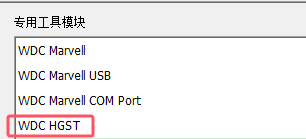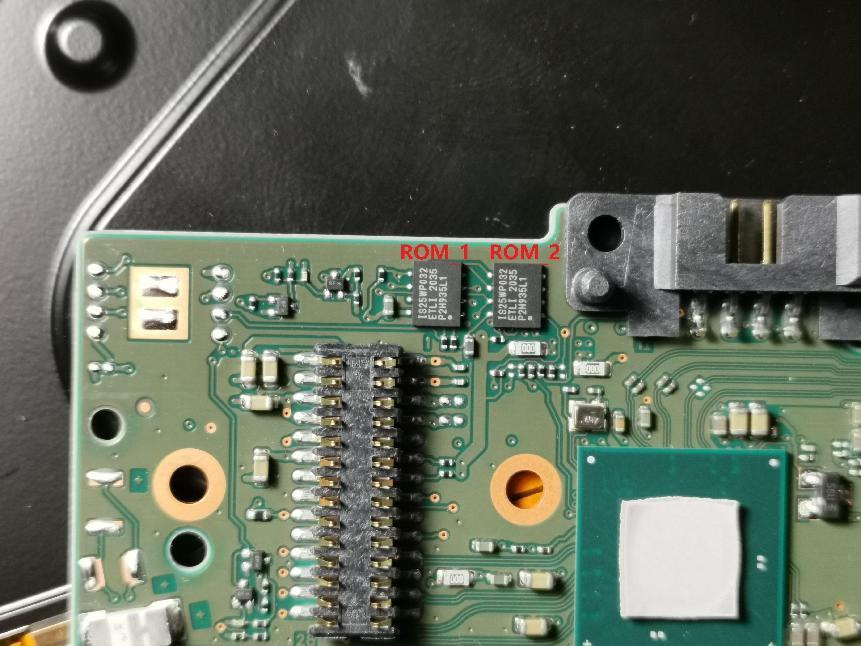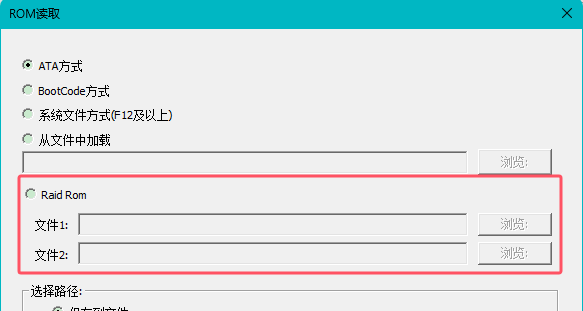MRT Upgrade Preview
|
It has been over 10 long months since September 3, 2024, and today we bring you the upgrade preview content for MRT version 11. This upgrade is divided into four major sections: 1. New program added for the Western Digital HGST series 2. Unlocking support and head map support for Seagate's ultra-large capacity hard drives 3. Further optimization and support for SSD module controllers 4. A leap in user experience for file operations with the Data Explorer module
Features of the Western Digital module upgrade: In recent years, a large number of Western Digital Hitachi product models have emerged, which are relatively high-end in positioning and difficult to support. The main reason is that their firmware structure combines the characteristics of both Western Digital and Hitachi, and the algorithm for the firmware lock is unknown. The upgrade this time adds a program module for WDC HGST:
Of course, due to the unlock issue not yet being resolved, users who have the necessary conditions may provide feasible unlocking solutions for our research, which will help us investigate whether unlocking is possible in the future. Based on this, the current module's program follows the layout and functionality of the WDC Marvell module, and any new features will be added accordingly in future updates.
The advantage of this series is its strong firmware stability, with failures rarely occurring. Most issues are typically related to the heads or bad sectors. One known type of common failure is characterized by sector errors across the entire disk during LBA logical scanning. This update is capable of handling this specific type of LBA fault. Since this series is commonly found in helium-filled drives, and to make naming and identification easier, we have added a corresponding function name: Helium Drive Quick Formatting.
Seagate Module Major Upgrade: In version 9, we once introduced a programmer base aimed at solving read/write issues in dual-chip solutions:
Now, similar products have gradually appeared on the market. Currently, physical read/write issues have been resolved; the main focus now is on parsing the ROM and researching the firmware unlocking algorithms. It is known that not all hard drives with these dual-chip solutions cannot be directly read through bootcode mode, which may be due to early manufacturer schemes. Subsequently released hard drives do not currently support direct ROM reading. These pin-less chips store two segments of ROM code, and our primary research focus is solving the ROM structure recombination issues and unlocking algorithm challenges. The new version also provides corresponding merge and split functionalities:
From the collected hard drives, such hard drives are mostly concentrated in the C6 and C8 families. In the future, more families will certainly emerge, and this upgrade also supports firmware unlocking. It should be noted that the dual chips used in these hard drives have larger capacities, with a single chip's ROM size being 4096KB. When unlocking, it is essential to back up the complete ROM size and mark it properly. Additionally, due to early architectural limitations, MRT did not support bitmaps for more than 16 heads, causing the software to provide inaccurate or unsupported bitmap information when handling large-capacity hard drives with multiple heads. This upgrade optimizes the underlying code comprehensively, providing better support for large-capacity hard drives with multiple heads.
SSD Module Major Upgrade: In the free update of version 10, we supported the creation of a virtual translator for the PS3102 controller, adding to the previously supported SM (Silicon Motion) controllers and Phison controllers. Currently, there has been significant progress in supporting the two major third-party controller camps in SATA SSDs. This upgrade also addresses some detailed issues, optimizing translator support, and significantly enhancing the user experience. After all, MRT started relatively late in the SSD field, with a weaker accumulation of knowledge and needs continuous improvement to better assist in data recovery work. Additionally, support for some Marvell controllers and SSD models has been added, marking a step forward to a new level.
Regarding the research and development support for NVMe SSDs, we have provided answers to some users during regular Q&A sessions: Due to the fact that NVMe SSDs adopt the latest generation transmission protocol, which differs from the traditional SATA transmission protocol, and considering the functional design of MRT products, there were no such products in the early stages. Therefore, MRT currently does not support hard drives with this interface.
We have received support regarding hard drives and product demands from some users, and we are grateful for their strong assistance. Currently, this R&D project is still in the development stage, and as for when it will be released, it remains unknown. When there are important updates, we will still update the news on our official website. Please stay tuned to official announcements. |





